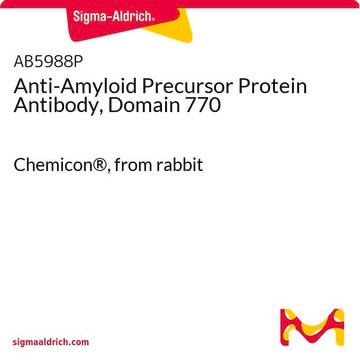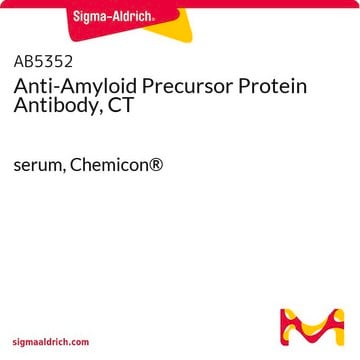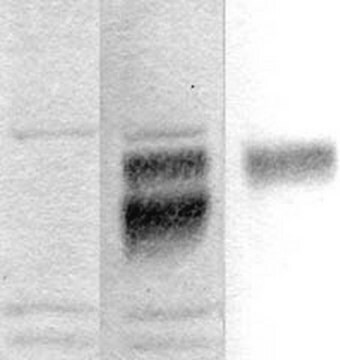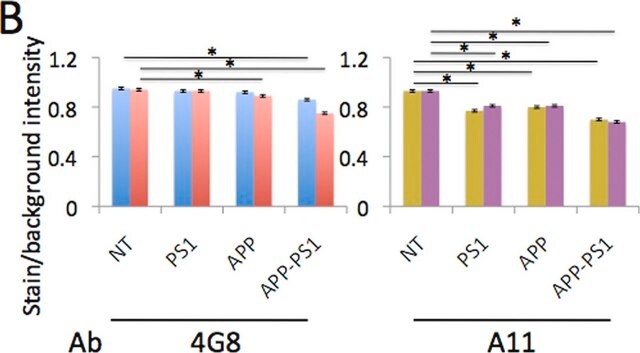AB5300
Anti-Amyloid Precursor Protein Antibody, universal
serum, Chemicon®
Sinónimos:
APP
About This Item
Productos recomendados
biological source
rabbit
Quality Level
antibody form
serum
antibody product type
primary antibodies
clone
polyclonal
species reactivity
human, monkey, mouse
should not react with
bovine
manufacturer/tradename
Chemicon®
technique(s)
immunoprecipitation (IP): suitable
western blot: suitable
NCBI accession no.
UniProt accession no.
shipped in
dry ice
target post-translational modification
unmodified
Gene Information
human ... APP(351)
Specificity
Immunogen
Application
Neuroscience
Neurodegenerative Diseases
To reduce incubate the slide (Blot) in TBS (PBS) + 50mM 2-mercaptoethanol at 37°C for 3 h in the dark. Wash twice with TBS, then incubate in TBS (PBS) + 20 mg/ ml of Iodoacetic acid for 30 min at room temperature. Wash twice with TBS (PBS), block and process as usual.
Immunoprecipitation: Need to reduce and alkylate disulfide bonds to expose the epitope
Optimal working dilutions must be determined by end user.
Physical form
Storage and Stability
Legal Information
Disclaimer
¿No encuentra el producto adecuado?
Pruebe nuestro Herramienta de selección de productos.
Optional
Storage Class
10 - Combustible liquids
wgk_germany
WGK 2
flash_point_f
Not applicable
flash_point_c
Not applicable
Certificados de análisis (COA)
Busque Certificados de análisis (COA) introduciendo el número de lote del producto. Los números de lote se encuentran en la etiqueta del producto después de las palabras «Lot» o «Batch»
¿Ya tiene este producto?
Encuentre la documentación para los productos que ha comprado recientemente en la Biblioteca de documentos.
Nuestro equipo de científicos tiene experiencia en todas las áreas de investigación: Ciencias de la vida, Ciencia de los materiales, Síntesis química, Cromatografía, Analítica y muchas otras.
Póngase en contacto con el Servicio técnico








